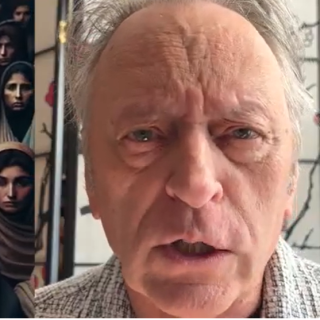Advertisement
The illicit street sale of “fenty” or fentanyl in Columbus is wreaking havoc with its drug dealing violence and overdoses. The opioid epidemic led to illegal sale of fentanyl in the first place, and the HBO documentary “Crime of the Century” is further exposing Cardinal Health of Dublin as culpable in starting this two-decade long scourge.
“Crime of the Century” by Academy award winning documentary filmmaker Alex Gibney premiered last week with Gibney telling national media that Cardinal Health and others pushed millions into addiction but their ownership and CEOs aren’t under threat of criminal charges.
Unintentional overdose deaths in Ohio finally started to subside in 2018, but this wasn’t the case for Franklin County. From 2012 to 2019 the county went from 191 deaths to 547 deaths a year, and the pandemic made it worse.
“From January 2020 to June 2020, overdose deaths in Franklin County increased by almost 75% from the same time period in 2019,” states the webpage of Vertava Health, a nationally recognized healthcare institution treating mental health and drug addiction.
The Free Press has heard “fenty” in powder form can be bought in Columbus for as little as $10 a bag, which we all know is enough to kill.
The drug dealing pushers have no soul as they trap addicts with their product, but should Cardinal Health and their founding family – the Walter family – be held criminally accountable as drug dealers are?
Many a service sector worker in Columbus will tell you the Walter family, one of the richest if not the richest family in Central Ohio, are narcissistic egomaniacs. The service workers question whether the Walters have sympathy for those who have died, an estimated 500,000 opioid deaths nationally since 2000.
Cardinal Health is a longtime “middle man” distributor of oxycontin and other prescription opioids. And there’s the confusion surrounding Cardinal Health which has quietly reaped billions in profit during the opioid epidemic ($6.8 billion in 2020).
How exactly did Cardinal Health help ignite the nation’s opioid epidemic?
They are not the manufacturer (Purdue Pharma), nor do they prescribe medication (CVS). They are simply the distributor to pharmacies, as manufacturers by law can’t sell direct.
Cardinal Health is legally obligated by the Controlled Substances Act of 1970 to alert federal authorities of prescription drug orders that were suspicious, but they essentially played dumb (and greedy) when pill mills began popping up in West Virginia and Florida in the mid-2000s.
A landmark federal civil trial is underway accusing Cardinal Health and others of distributing nearly 110 million doses of oxycodone and hydrocodone to Cabell County (Huntington), West Virginia from 2006 to 2014, a community with a population of 90,000.
Pharmacies here were receiving 50 times the average national monthly supply, and now 1 in 4 residents of Huntington are battling heroin addiction, according to a recent National Geographic investigation.
“If you see a pharmacy that’s been ordering 5,000 tablets over two years, and now you see they’re ordering 40,000, and then 60,000, and then 100,000, that’s suspicious. There’s no way you can say that’s not suspicious,” said former US Drug Enforcement Administration deputy Joe Rannazzisi in the HBO documentary.
For a decade Rannazzisi desperately tried to crackdown on Cardinal Health and others. But a sold-out US Congress – and to an extent Rannazzisi’s own DEA which forced him out of his job after being pressured by Congress to do so – kept allowing Cardinal Health to flood marginalized communities with their drugs.
In 2008 Cardinal Health paid a slap-on-the-wrist $34 million penalty for failing to report thousands of suspicious orders of hydrocodone. In 2012, they paid another fine for shipping 12 million oxycodones to only four Florida pharmacies. And in 2016, the DEA again busted Cardinal Health for shipping suspicious amounts of opioids to Florida.
Cardinal Health has always denied any wrongdoing, essentially placing blame on the doctor’s prescribing the so-called medicine and telling the world they are simply a “trucking company” helping people deal with back pain.
Yet their need to protect themselves and their profits had no bounds. Linden Barber is a Senior Vice President at Cardinal Health, but during the height of the opioid epidemic he was an Associate Chief Counsel for the DEA. After being lured away by the DEA, he lobbied Congress on behalf of drug companies and introduce legislation favorable to Cardinal and others.
Criminal charges against the families which planted the seeds to the opioid epidemic – such as the Sacklers’ of Purdue Pharma and the Walters’ of Cardinal Health – will probably never materialize as our corporate oligarchy class remains untouchable.
One question that now lingers is, will the Walter family ever admit personal responsibility for helping start the opioid epidemic?
“This is an industry that’s out of control. What they wanna do, is do what they wanna do, and not worry about what the law is. And if they don’t follow the law in drug supply, people die. That’s just it. People die,” said Rannazzisi once, a quote of his often repeated.



